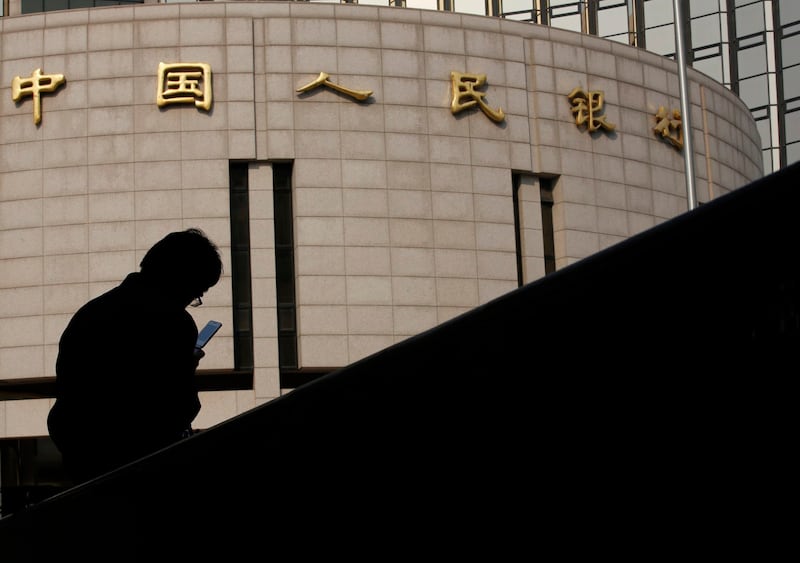The Chinese Communist Party's summer holidays have drawn to a conclusion, just as they began, with little fanfare – an appearance on CCTV of Premier Li Qiang chairing a State Council plenary meeting.
President Xi Jinping presided over a meeting of the Standing Committee of the Political Bureau of the Communist Party of China Central Committee on Thursday to study and arrange work on flood prevention and relief as well as post-disaster restoration and reconstruction, according to Xinhua.
China’s leaders have been out of the public eye and incommunicado during the two-week holidays in Beidaihe, a coastal resort on Bohai Bay, about 300 kilometers (186 miles) east of Beijing. Visits to Beidaihe are an annual retreat for the Communist Party (CCP) leadership and were first conceived by former party chairman Mao Zedong in 1953.
Xi’s return to the fray – amid widespread natural calamities and unprecedented bad economic news – was first provided by the eminent party mouthpiece Qiushi Journal, which on Tuesday ran a February speech by Xi on matters economy-related.
Qiushi regularly runs transcripts of speeches by senior party leaders months after they were delivered at moments when their message is considered to be worth repeating by the party.
In his Feb. 7 speech to hundreds of top party members, Xi “asked” his listeners to take a long view, bearing in mind China’s vast population and “the large rural-urban development gap.”
“We cannot be ambitious and unrealistic, but we cannot simply follow the beaten path,” Xi reportedly said.
Repeating one of his favorite catch cries, Xi said social cohesion and “common prosperity” were the answers to the middle-income trap – a reference to economies built on low salaries and exports but unable to transition to higher incomes, value-added products and consumer-driven prosperity.
Xi also took a swipe at the West, arguing that capitalism was characterized by “wars, slavery, colonization and exploitation.”
Speaking to the second plenary meeting of the State Council Wednesday, Premier Li Qiang referenced Xi’s speech, invoking the usual feel-good Chinese Communist Party look-to-the-future mantra – make progress while maintaining stability, strengthen confidence, ensure completion of annual goals and tasks and promote high-quality development.
Based on economic numbers and news coming out of China in recent weeks, however, inspirational words are unlikely to nudge the country out of an increasingly negative feedback loop.
Among the many problems that continue to surface are a collapse of the property sector – which amounts for a quarter of Chinese GDP – U.S. restrictions on technology exports, a massive slow-down in foreign investment and the lack of a consumer-led rebound in the aftermath of the COVID-19 lockdowns, as all leading indicators of consumption, exports and investment flag.
Earlier this week, China’s statistics bureau announced it was suspending further releases of youth unemployment data, citing methodological issues that needed to be tweaked. Unemployment was known to be riding at more than 20% but is widely considered to be considerably higher.
Low confidence
So far, there has been little in the way of official responses to the slew of bad economic data that speak of a deep malaise – or at least a lull in China’s normally robust animal spirits – other than an unexpected move by China’s central bank to lower interest rates on Tuesday.
The reduced rates for various types of loans, included the medium-term lending facility (MLF) rate, the seven-day reverse repurchase operation rate and the standing lending facility (SLF) rate by 15 and 10 basis points respectively.

Hank Huang, President of the Taiwan Academy of Banking and Finance told RFA Mandarin that the impact of the rate-cut move was expected to be limited.
In the real estate sector, he said, people are repaying their loans early to ease the burden of housing loans, while on the corporate side companies have significantly fewer orders, and even with lower interest rates, there would be little willingness to borrow money for expansion.
“When final products like mobile phones, cars and houses are not being purchased, even when their prices drop, any subsequent stimulus measures are redundant,” said Huang. “The problem now is deflation, and we’re facing sluggish demand.”
Chinese financial scholar He Jiangbing said to RFA Mandarin that ultimately Beijing had limited room for interest rate cuts, noting that the key problem was not the level of interest rates but rather the lack of confidence.
“When the economy is doing well, even with high interest rates, people are willing to borrow because they have a goal in mind, expecting the economy to improve. However, now everyone believes the economy won't get better.”
Edited by Mike Firn.
